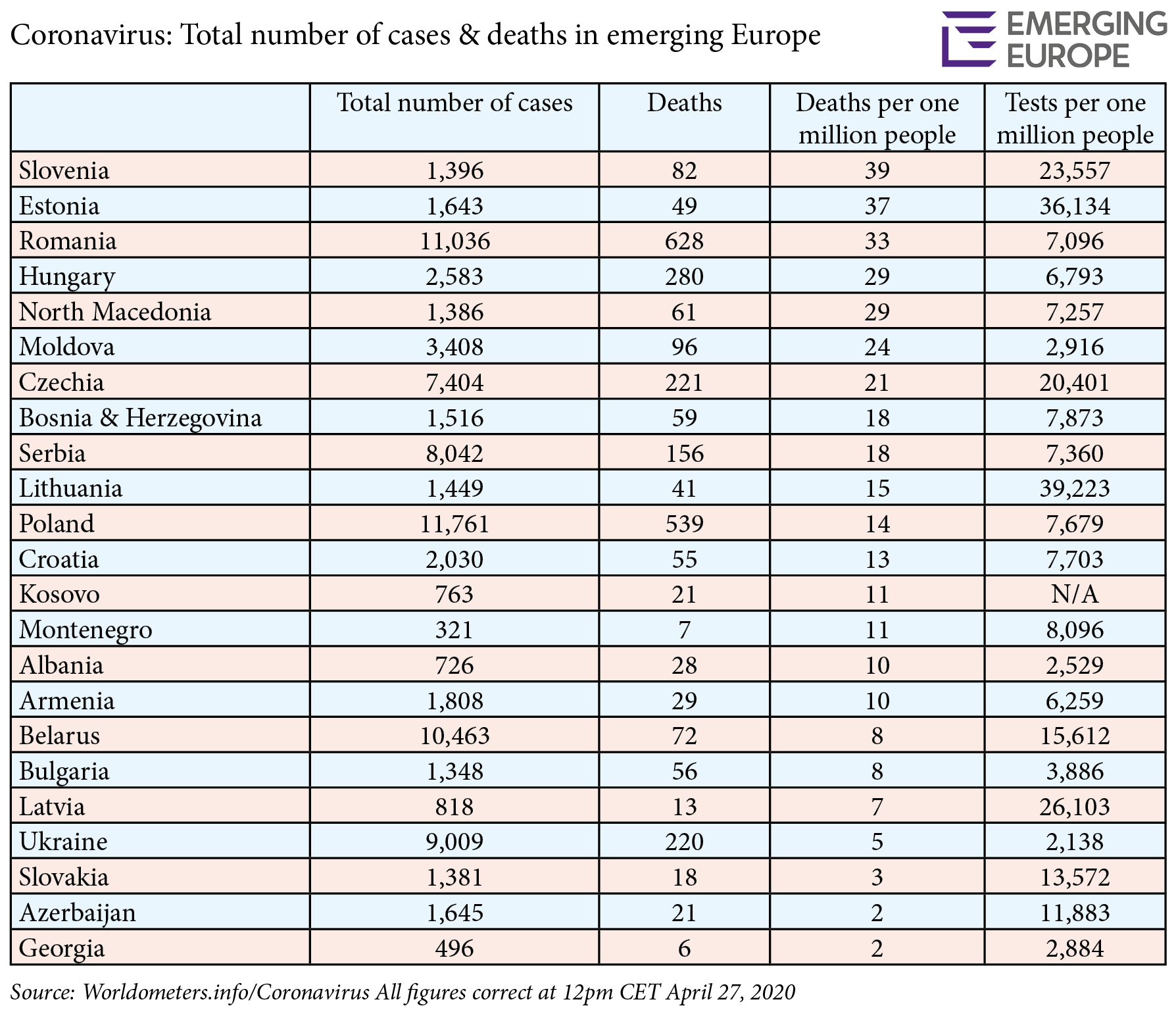With some notable exceptions, curves are beginning to flatten across emerging Europe, both in terms of the number of people infected with Covid-19 and the number of deaths. Not one country however can yet claim to be on a descendant trend. The worst, in some places, is yet to come.
Romania has the highest number of deaths in the region, at 628, and Poland the highest number of confirmed cases, at 11,761. However, the number of infections in Belarus – whose authorities have to all intents and purposes ignored the threat of coronavirus – is on a relatively steep trend and the country is likely to have the region’s highest number of confirmed cases by April 28 or 29.
Looking at these charts, however, it is clear that for those countries in the region which have been worst affected by Covid-19 (notably Czechia, Hungary, Poland, Romania, Ukraine) the peak number of either deaths or infections has almost certainly not yet been reached.
Why then, have Czechia and Poland begun to ease confinement restrictions? (Serbia, on May 4, and Romania, on May 15 will also ease restrictions).
The World Health Organisation (WHO) has for some weeks urged countries not to lift measures put in place to slow the spread of the coronavirus too early.
Neil Ferguson, an epidemiologist with Imperial College London and adviser to UK Prime Minister Boris Johnson, has said on a number of occasions that rules should only be relaxed when mass testing has been put in place. In emerging Europe, the number of tests being carried out is almost universally low (the exceptions are Estonia, Latvia and Lithuania, where the rate of tests per one million people is higher than Germany).
As such, the three Baltic States (as well as Slovenia and Czechia) probably have the most accurate coronavirus data in the region, which makes Latvia’s performance (fewer than 1,000 cases and just 13 deaths) remarkable.
What’s more, Latvia has kept many shops and other businesses open as part of a balance struck between keeping people healthy and doing the least amount of damage possible to the economy.
In Latvia, shopping centres are only closed at weekends, and businesses such as garden centres, construction shops and opticians have remained open.
The guiding principles of Latvia’s approach have been “testing, identifying, isolating”, says its prime minister Krisjanis Karins.
Latvia has now tested more than two per cent of the population, with each positive case starting a domino effect of contact tracing in order to ensure that those who may be infected self-isolate for 14 days.
Other countries in emerging Europe will need to ramp up testing to Baltic levels if they are to avoid new spikes in cases once lockdown restrictions are lifted.
—
Unlike many news and information platforms, Emerging Europe is free to read, and always will be. There is no paywall here. We are independent, not affiliated with nor representing any political party or business organisation. We want the very best for emerging Europe, nothing more, nothing less. Your support will help us continue to spread the word about this amazing region.
You can contribute here. Thank you.








[…] virus, de tracer leurs proches et de placer ces derniers en quatorzaine. La Lituanie se situerait dans le peloton de tête des pays de l’UE pour le nombre de tests réalisés par […]